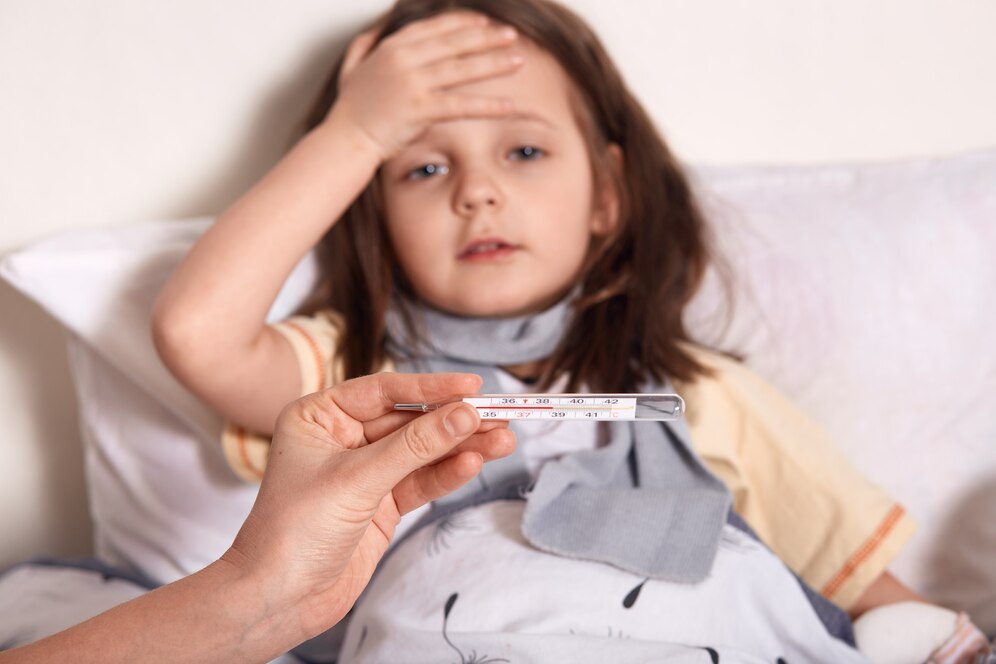Last updated on July 9th, 2025 at 06:36 pm
Overview – Childhood Obesity
Childhood obesity is a global issue. By 2030, India is expected to have 27 million children with obesity. The effects of obesity on the body can be quite harmful. Obesity can cause health conditions such as diabetes, high blood pressure, and high cholesterol. These were earlier considered adult health problems. Sadly, that’s no longer the case.
However, the good news is that obesity is a lifestyle disease and thus can be prevented and controlled with the right steps. Changes in dietary styles and lifestyle habits can keep children healthy, active, and away from obesity. Also, greater awareness about health can help parents make better choices for keeping their children healthy and avoid future health problems.
Read on to learn about the effects of childhood obesity and how to prevent it.
What is childhood obesity?
Obesity is when the body stores excessive fat. The Body Mass Index helps determine if one is obese. If the BMI crosses 25, a person is considered overweight. If it crosses 30, the person is considered to have obesity.
Obesity has proven to pose several health complications. Some of the primary issues are related to the heart and hormones. This is for both adults and children. But obesity among children is more concerning since their body is in the developing stage. Thus, hormonal disbalance in children can cause greater health risks.
The effects of obesity on the body and the mind can impact your child’s overall well-being. Obesity is also a leading concern for teenage depression, body dysmorphia, and poor self-esteem.
What causes childhood obesity?
Childhood Obesity is a lifestyle disease. Several lifestyle factors contribute to this issue.
1) Diet:
The excessive consumption of high-calorie foods can lead to childhood obesity. Some examples are burgers, pizzas, cakes, pastries, cookies, and candies. Unfortunately, these have gained extreme popularity among children today.
2) Lack of exercise:
Lack of participation in sports or an active lifestyle is another cause of this lifestyle disease. Children spend more time indoors, glued to their screens. This lack of activity leads to childhood obesity and mental health issues.
3) Family environment:
Children whose parents and siblings are overweight or have obesity are likely to put on weight. Moreover, an environment where high-calorie food is preferred and physical activity is not encouraged increases the possibility of children developing weight issues.
4) Environmental factors:
Feeding practices at home influence a child’s eating habits. Increased consumption of processed food at home and proximity to food outlets and supermarkets increase the risk of obesity among children.
5) Psychological factors:
Stress owing to parental and study issues can leave the children emotionally disturbed. It can lead to anxiety, depression, or boredom. To cope with such difficult feelings, children often tend to overeat, which can cause excess weight gain, and eventually obesity.
What are the effects of childhood obesity?
The impact of obesity on children can be a major one. Some of them are as follows:
1) Type 2 diabetes:
Excessive body fat makes muscles and tissues resistant to insulin and increases the risk of diabetes. Diabetes is the body’s inability to process glucose. It is a harmful effect of obesity on the body and can lead to eye disease, nerve damage, and kidney disease.
2) High cholesterol and blood pressure:
Earlier considered adult health problems, high cholesterol and high blood pressure are now frequent among children with obesity. Foods high in fat and salt cause an increase in blood pressure and cholesterol levels. Cholesterol leads to the development of fatty deposits in the arteries, which blocks blood flow and leads to heart disease.
3) Breathing problems:
Asthma is common among children with obesity. Extra fat around the abdomen and the chest restricts the airway causing difficulty in breathing. The fat tissue produces inflammatory substances that affect the lungs and increase the risk of asthma.
4) Joint pain:
Excess weight puts pressure on the joints and causes stiffness and pain. It also limits the child’s movement, damages the cartilage early in life, and leads to arthritis.
5) Menstrual issues:
Girls with obesity may attain puberty at a comparatively earlier age. Obesity may also cause uterine fibroids and menstrual irregularities in the future.
Summing up
Parents are the best role models for children as they can inspire their children to follow a healthy lifestyle. Increase awareness among your children regarding their health and teach them the importance of staying physically fit and active. To start with, instilling healthy eating habits in children can prevent the effects of obesity on the body. Preventing weight gain in childhood goes a long way in ensuring your child’s physical, mental, and emotional well-being.
Visit Medkart for more such interesting reads today!
FAQs related Childhood Obesity
1. How does childhood obesity affect the quality of life?
Childhood obesity causes chronic health problems. Furthermore, it affects the emotional and mental health of children. Children suffer from poor self-image and self-esteem. They may also experience bullying, depression, and loneliness.
2. How early does obesity start in childhood?
Obesity in children begins between 2 and 6 years. A study shows how most adolescents become overweight and develop obesity by age 5.
3. How can obesity in childhood be prevented?
Obesity in childhood can be prevented by following a healthy diet and lifestyle. This would include,
- Limiting high-calorie and high-fat foods
- Including fruits, vegetables, whole grains, pulses, and nuts.
- Staying well-hydrated
- Engage in regular physical activity for at least 60 minutes every day.
- Replace sugary drinks with homemade milkshakes or smoothies.
- Reducing screen time to ensure proper sleep
